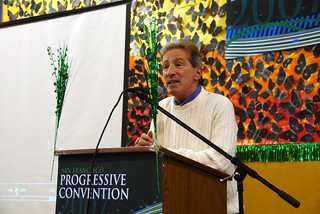Request was part of legislative compromise
by Brian Leubitz
The key to all of the Senate Democrats plans to get real reform in our corrections system was a three year delay on the court ordered return to 137.5% of prison capacity. Gov. Brown has now gone ahead and asked the court for the delay:
Gov. Jerry Brown has asked federal judges for a three-year delay in their requirement that the state release thousands of inmates by year’s end to ease prison overcrowding.
If the judges reject his request, the administration would spend $315 million this fiscal year to house the inmates in private prisons and county jails instead of turning them loose.(KTVU/AP)
Now, the state did try to offer a few other promises to get the courts to go along with the delay, including spending additional resources on rehabilitation services. But the court, given their previous writings on the case, seems unimpressed with the state’s track record on the issue, and it would take something of a change of heart for the delay to be allowed. And the plaintiffs are objecting to any delays:
“There is no timetable, there’s no promise of what programs will be in place when, all there is is a promise to talk some more even though they’ve had five years to evaluate these different alternatives,” said Don Specter, director of the nonprofit Prison Law Office that sued over inmate crowding. “The definite trend in the rest of the nation is to go away from incarceration. Instead, California is going in the direction of another incarceration binge.”
These other states that have moved away from the “incarceration binge” include such notable progressive bastions as Kansas and Mississippi. What they discovered is that there are better ways to reduce and control crime than simply creating bigger jails.
Whether we get the delay or not, we still need to work over the next three (+/-) years to truly reform our corrections system so that we are locking up the right people, reducing recidivism, controlling costs, and keeping our communities safer. There is a way to thread that needle, to reach for all of those goals, but we have a long way to go.



